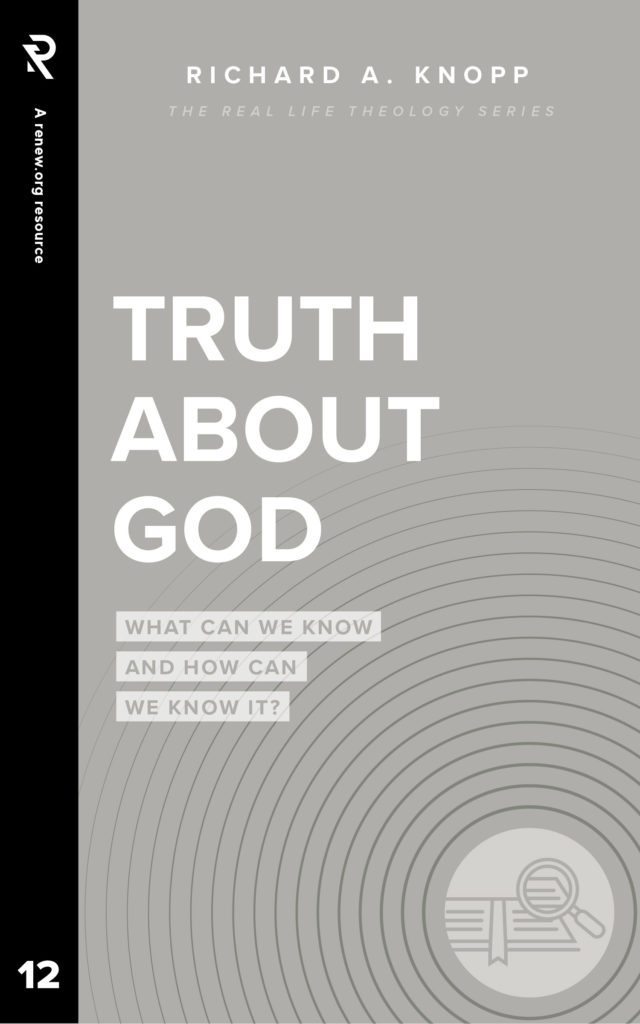
6 Reasons We Are Drawn to Christianity’s Deconstruction Stories
Why are we drawn to deconstruction stories within Christianity? Here are 6 reasons many of us resonate with elements of these stories.
The last several years have presented us with a deluge of faith deconstruction and deconversion stories. Some of those who have left the faith or departed from classical Christianity to embrace some other form of the faith are well-known public figures. Lately, it seems as if nearly monthly, sometimes more often than that, we are confronted with yet another prominent preacher, Christian music star, or cultural influencer of another sort who shares the story of why traditional biblical faith “just wasn’t working” for them anymore. In reality, I think people have been deconstructing and deconverting for years; many are simply more outspoken about their experiences now than was once commonplace.
Just in case you have been hiding under a rock lately—no judgment upon you if you have, as that’s probably felt like a safer place these last few years—I will take a minute to make sure we are all on the same page when talking about the subject of deconstruction and deconversion. At a basic level, people often begin deconstructing their beliefs about God when questions about the validity of the Bible, the veracity of the Christian worldview, or the character of God go unanswered.
“People often begin deconstructing their beliefs about God when questions go unanswered.”
Sometimes these questions receive answers, but the answers come from a skeptical source, maybe from an agnostic, atheist, or even someone who has adopted the views of progressive Christianity. Some who are on this journey of deconstruction have suffered wounding at the hands of a local church leadership. Hard questions aren’t always rooted in intellectual battles alone, but emotional ones as well. In the end, deconstruction usually means that some will adopt a more progressive view of Christianity, while others immediately or eventually deconvert entirely.
Prominent Deconstructions
As I mentioned already, in the last few years many prominent Christians have walked this path and chosen to share their stories in very public ways. Some of these stories have hit close to home with me. I think about Joshua Harris, the former pastor and author of the book that was so popular while I was a college student, I Kissed Dating Goodbye. His writing influenced me to think much more seriously about the casual nature of some of my dating relationships. A few years ago, popular author Jen Hatmaker went through her own time of deconstruction. I think as well about several of those who were instrumental in launching the influential podcast “The Liturgists.” I was once a big fan of the Gungors and “Science Mike.”
More recently, affecting quite a few in the generation behind me, YouTube and podcast stars Rhett and Link shared their stories on their platforms reaching an audience of millions. There are others we could name, like the former lead singer of Hawk Nelson, Jon Steingard, or pastor John Piper’s son, Abraham Piper, who, largely because of his mocking criticism of evangelicalism has become a TikTok sensation.
Our Obsession with Deconstruction Stories
Thinking through these deconstruction and deconversion stories, however, is not why I am writing this article. What I want to focus on is the obsession that many, both Christians and non-Christians, seem to have with these stories. The moment a one-time influencer in the Christian world announces they are leaving the faith, social media feeds light up with the news. I have certainly noticed this in my own news feeds on some of the more popular social media outlets.
As I have witnessed this phenomenon, and admittedly often lamented it, I have asked myself the question why. Why are we drawn, almost magnetically, to these stories? What is it about these stories that tugs on us so insistently? Is it the train-wreck theory? In other words, it is that we just can’t help but look, even though we know it’s bad, and we will later wish we’d had the discipline to look away? Or is it something even more easily explained: we are most likely to consume the media directly in front of us, and it happens to be in front of us? Or is it something that may suggest a deeper connection: could it be that we find ourselves connecting with elements of these stories? I think there’s a lot of truth to this last possibility.
Could it be that we find ourselves connecting with elements of these stories?
Here are six reasons I believe we are so captivated by stories of deconstruction and deconversion, and they all lie in the resonance many of us feel with elements of these stories, even when we grieve the stories’ endings.
#1 – We all have questions.
We all have questions. Period. All followers of Jesus, even the most mature ones, will at times face questions that challenge their faith. Why does God allow so much evil and suffering in our world when he has the power bring them to an end? Why does the Old Testament contain some truly uncomfortable stories? Do I have to believe in a literal six-day creation to be a Christian? Why do some intellectuals claim that the Bible is full of errors? What do I do when science and faith seem to collide? At face value, all of these are legitimate questions. Many of those who have recently shared their deconstruction stories have wrestled with a version of one, sometimes multiples, of these questions. Can I be honest for a moment? I have wrestled with some of these questions myself.
After reading the book The Da Vinci Code, I walked through a minor faith crisis.
In 2003 after reading the book The Da Vinci Code, I walked through a minor faith crisis. Suddenly, I was faced with half a dozen questions I had never considered before. Was the Bible full of errors? Had the process of canonization truly “picked the winners,” as Dan Brown suggests? Were there other gospels we should be reading in addition to Matthew, Mark, Luke, and John? These were just a few of the questions I found myself struggling to answer.
But I did find answers. Good ones. I believe the difference between those who find themselves following Jesus on the other side of the deconstruction process, having reconstructed a more faithful faith, and those who walk away from traditional Christianity is often a product of the answers that are discovered. I asked my questions. I wasn’t shy about it. I called former professors. I read at least a dozen books that guided me through. I’m thankful I found answers, because the truth is, we all have questions.
#2 – Many of us don’t have a safe place to ask questions.
This brings us to another theme that is often present in many of the stories I have heard. Again, we all have questions. The trouble is many don’t believe they have a safe place to voice those questions. That creates a difficultly. What do you do when faced with questions that challenge some of your most deeply held beliefs, but you don’t trust that you have a safe place to ask them?
I couldn’t be more grateful for those who helped me when I was doubting. They shaped my journey in ways I may never fully realize this side of eternity. But not everyone has a direct line to seminary professors who have spent years of their lives walking through some of the most direct challenges to the Christian faith.
(Although nowadays, everybody does have a direct line to the helpful thinkers at Room for Doubt, headed by Renew.org author Richard Knopp. At Room for Doubt, you are invited to submit your toughest questions and they’ll write articles helping you process them.)
“Many of our churches have not proved to be safe places to ask difficult questions.”
The truth is, many of our churches have not proved to be safe places to ask difficult questions. I worked twelve years in youth ministry and made it my goal to be that safe place for my students. In that time, however, I learned just how “un-safe” many of our Christian homes can be when children doubt. I could tell you about teenagers whose difficult questions were brusquely brushed off by parents. I can tell you about elders who by their reactions made it plain that “we don’t ask those kinds of questions here….”
And at a much less sinister level, I can tell you about well-meaning friends, parents, grandparents who simply had no answer to a difficult question, and so they used the cringeworthy line, “Well, that’s why it’s called faith…” (as if there was simply no intellectually or emotionally satisfying answer to questions like, “Why does God allow evil?”). There are some things we have to accept by faith, but when this becomes the go-to answer for all difficult questions, we are in trouble.
#3 – There is a raging mistrust of anything institutional.
There is a fire that has been growing in size in recent years. It’s not a new fire, but there seems to be more fuel primed to be thrown into the blaze these days than in previous seasons. What I’m talking about is the fire of mistrust and skepticism directed toward anything institutional. A good deal of this mistrust is warranted (and yet, I know a good deal is also driven by misinformation). Scandal after scandal has rocked many of this nation’s cultural institutions, and the Church is not immune. In fact, at times it has seemed as though the Church in America was right at the heart of some of the more scandalous scandals. There is a reason for the current of culture of mistrust, and many of us feel it.
“There is a reason for the current of culture of mistrust, and many of us feel it.”
Nearly two decades ago when I experienced my own season of skepticism and doubt, my own lack of faith in a particular institution played a significant role. One of the assertions that Dan Brown made in The Da Vinvi Code struck a real chord with me. In a nutshell, his argument was that for centuries the Roman Catholic Church controlled all that we know about the Christian faith: the Scriptures, doctrine, etc. And if that is true, then how can we truly trust anything we think we know about Christianity, and Jesus specifically? After all, we know that Catholicism has been the driver of some shady dealings, such as the selling of indulgences, the repression of any deviation from accepted catechism during the time of the Inquisition, or even the refusal to see the Bible translated into a language the common masses could actually read. Well, I already didn’t disagree with any of that, so maybe Brown was right about the rest of his claims too.
Here’s what I can conclude looking back. My willingness to entertain claims that I would otherwise have had a fairly easy time dismissing was driven by a shared skepticism about the trustworthiness of an institution—not the reasonable veracity of the actual claims. I think this factor is at play for many today as well and is another reason we find ourselves drawn to deconstruction stories.
#4 – We are drawn to the “me against the world” that narratives that many who are deconstructing their faith tell.
Who doesn’t like a hero? Most of our movies surround a heroic figure of some sort. It’s the thing good stories are made of. Often these heroes find themselves up against nearly insurmountable odds. They seem to be facing certain defeat, but in spite of the odds, and when most others would back down or run away, they stand strong. These are the stories, the narratives, that we tend to find most compelling. For many, the deconstruction and deconversion stories seem to embody some element of this narrative.
Here’s some of how I sense this narrative often plays out: It is those who are brave enough to ask the difficult questions who deconstruct faith. It is those who are brave enough to stand up against the institution of the Church, and at times even their own families, who share with us their deconversion stories. Those who are brave enough to point out the “errors” of the status quo disassemble the old constructs and replace them with something new. In many ways, the tone of this narrative is a product of the culture we live in. The narrative can also be tied directly back to our mistrust of institutions which we have just talked about.
“Those who are brave enough to point out the ‘errors’ of the status quo disassemble the old constructs and replace them with something new.”
Now, while we can all, on some level, identify with this draw to heroes, we should also acknowledge that not all who push back against institutions are truly heroes. Sometimes the end result is nothing more than a corrosive cynicism and ingratitude. True, asking difficult questions can be a good thing, a healthy thing, but rejecting the Scriptures while embracing cultural narratives is incredibly naïve. Some of what is glorified in our culture at the moment is not at all healthy. New is not always better.
Words written 2,000 years ago can mean every bit as much in our day as they did to the original readers. We, however, should not miss the significance of the cultural moment we are living in. The “me against the world” narrative, especially for younger generations, is a powerfully attractive one.
#5 – There are very real pressures from the culture around us.
Some questions are difficult because the answers are not easy to find. Other questions are difficult because the answers are not popular. This is a truth we must be aware of. Over the last few years, I have found myself in numerous conversations that have illuminated this reality. When church members and others bring me their difficult questions, I hope to help them find satisfactory answers. But often this is more difficult than it might at first seem.
I can articulate many of the intellectual explanations. I can help people understand why God allows evil and suffering in the world. I can help explain why we can be reasonably certain that the Bible we have today is highly and accurately reflective of the words written by the original authors. I can even help explain some of the more troubling stories in the Old Testament, like those found in the books of Joshua and Judges.
“It is more difficult when I’m sitting with two parents who have just found out that their child is struggling with same-sex attraction.”
It is more difficult when I’m sitting with two parents who have just found out that their child is struggling with same-sex attraction. A plain reading of the New Testament leaves no doubt about God’s will when it comes to sexuality. But the answers he has for us are not popular. Just twenty years ago, this conversation was not nearly as difficult as it is today. The pressures that culture is exerting upon those who follow Jesus are real and growing. We all feel it.
#6 – We have forgotten just how beautiful the Christian worldview and faith are.
“The cross is laid on every Christian. The first Christ-suffering which every man must experience is the call to abandon the attachments of this world. It is that dying of the old man which is the result of his encounter with Christ. As we embark upon discipleship we surrender ourselves to Christ in union with his death—we give over our lives to death. Thus it begins; the cross is not the terrible end to an otherwise god-fearing and happy life, but it meets us at the beginning of our communion with Christ. When Christ calls a man, he bids him come and die.”[1]
It is clear from the surrounding context that, when Dietrich Bonhoeffer wrote these words, he was writing about something he found truly beautiful. In the previous paragraph, he used the phrase “the grace of martyrdom” to describe the act of losing one’s life for the sake of Christ. Bonhoeffer regarded suffering for the sake of Christ as an honor. I wonder what kind of answers we would get if we asked a group of average churchgoers what they think about suffering. I wonder what kind of answer I would give in my most honest of moments. Suffering is typically seen as something to avoid, usually at all costs, as opposed to something to be embraced. Bonhoeffer’s words, and the disconnect they point out, tell a difficult truth to swallow: Many of us have lost the beauty of the Christian worldview, and the faith to which it is connected.
“Suffering is typically seen as something to avoid, usually at all costs, as opposed to something to be embraced.”
We have forgotten just how beautiful the story of Scripture is. At times this story is heartbreakingly beautiful. At others it is triumphantly and victoriously so. There is an incredible beauty in the worldview that acknowledges the deep brokenness of humanity. Only as we embrace this truth do we see just how beautiful the love of God is!
There is also something incredibly beautiful, contrary to the thoughts and feelings of many who have deconstructed their faith, about a God who would willingly take humanity’s punishment upon himself. It is not cosmic child abuse as some would suggest. Rather, as Jesus states in his own words, it is the moment in which we learn that, “Greater love has no one than this: to lay down one’s life for one’s friends” (John 15:13). God is at work to reconcile a world of broken people to himself (2 Corinthians 5:19).
There is also something incredibly beautiful about a God who is preparing a place for those who have entrusted their current and eternal futures to him. Yes, the reality of Hell is hard to deal with, but when we truly trust in the goodness of God, we find that we can trust he will handle even this most difficult of decisions justly as well.
“The worldview that Scripture presents is much more satisfying that the alternatives.”
Even with some difficulties acknowledged, the worldview that Scripture presents is much more satisfying that the alternatives. It also makes much better sense of what we see as we observe the truth of the human experience. Life is difficult, and much of what we see in the world around us feels ugly and broken at times. It is broken, but there is also beauty in much of what we see. That beauty exists only because the goodness of God continues to manifest itself, even in the midst of the chaos and dysfunction that are so prevalent in this age.
We must rediscover the beauty of the story of Scripture. As we do so, glib or dismissive answers to difficult questions will not be good enough. Deep and thoughtful answers will help us rediscover some of this lost beauty. I hope the conversation around this article will as well.
[1] Dietrich Bonhoeffer and Reginald H. Fuller, The Cost of Discipleship (London: SCM Press, 1959).








